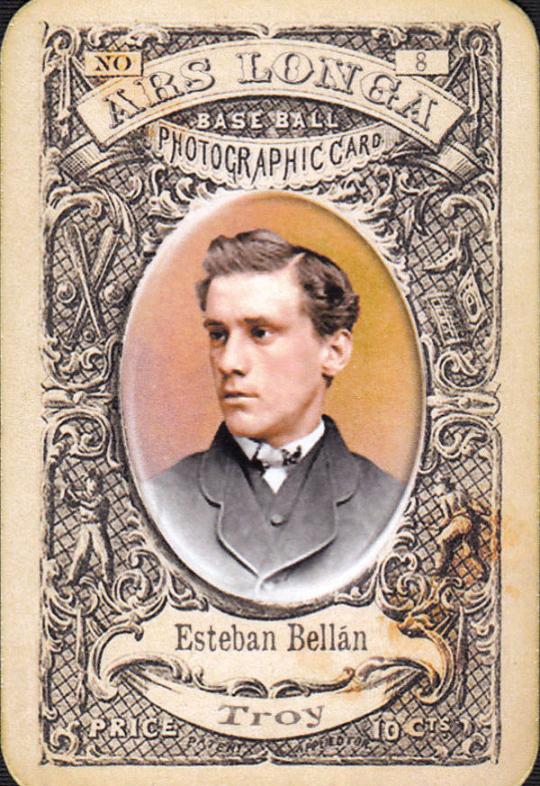- Home
- Our Stories
- Esteban Bellán charted the way for Latino ballplayers
Esteban Bellán charted the way for Latino ballplayers
To modern fans, the stream of baseball talent coming from Latin America may appear to be a 20th century component of baseball history.
But this is a pipeline that can trace its roots back to the earliest days of professional baseball in North America. In fact, when the first professional league formed in 1871, one charter member, the Troy Haymakers, had a Cuban-born player. He was Esteban Bellán, a young man born in Havana, who is today recognized as the first Latin American player to appear at the big league level.
Hall of Fame Membership
There is no simpler, and more essential, way to demonstrate your support than to sign on as a Museum Member.
Official Hall of Fame Merchandise
Hall of Fame Members receive 10% off and FREE standard shipping on all Hall of Fame online store purchases.
Bellán was born on Oct. 1, 1849 to a wealthy Cuban father whose name has been lost to history, and to Hart Bellán, his Irish-born mother. Cuba was a colony of Spain during this era and was beset with political turmoil as it struggled for independence.
It therefore became common for upper-class Cubans to send their children to the United States to further their education. This helped get their progeny to a safer location as the island often broke out in violence and conflict, but it was also a form of protest as the supporters of colonial rule were supposed to send their children to school in Spain.
Along with an older brother, Domingo, 13-year-old Esteban Bellán arrived in New York in 1863 to enroll in the preparatory department at St. John’s College. A small Catholic school at Rose Hill, in the Fordham section of the Bronx, the college would eventually become Fordham University. But in the 1860s it would be home to at least 10 Latin American students. Under the instruction of the Jesuit priests, Bellán would begin his education with three courses in English grammar and would remain enrolled for five years.
In addition to his classroom education, Bellán also began a long connection to baseball, a career in which he would serve as a pioneer in two nations. St. John’s College had supported a baseball program since September, 1859, and sponsored a team called the Fordham Rose Hill Baseball Club. Bellán’s participation on the team as a catcher and lead-off hitter gave him a chance to play a variety of schools and other local teams, with their managers having the chance to study this young ballplayer.
In 1868, at the age of 18, Bellán would join the Union of Morrisania baseball club, a program also located in the Bronx, but one which would provide greater exposure to the world of adult baseball. The Morrisania squad was powerhouse in the National Association of Base Ball Players (NABBP), and just after Bellán joined the team it went on a western road trip, providing him with the chance to play in most major Midwestern cities.
Following his year with Morrisania, Bellán joined the Union of Lansingburgh club in Rensselaer County, near Troy, N.Y. Census records indicate that his mother and several sisters had taken up residence in this area, helping to explain his move upstate.
This occurred at the time when the NABBP was debating the establishment of professionalism in the game, with Lansingburgh making the decision to join this new category. They would appear as the Troy Haymakers, a charter member of the National Association, the first openly professional major league in 1871.
Bellán would play for Troy during the 1871 and 1872 campaigns, and would appear as a member of the New York Mutuals of the National Association in 1873. As a third baseman, he was known for his slick, gloveless fielding skills, earning the nickname “The Cuban Sylph.”
The New York Clipper would report that he was “one of the pluckiest of base players.” His arm, however, was described as erratic and his hitting skills were average. Regardless, he was good enough to play at the highest level for the three seasons before heading back to Cuba.
Upon return to his native island, Bellán would discover the population was more than ready to adopt his favorite sport. While there is some dispute as to who deserves credit for the introduction of the game, Bellán certainly played an important role in its further development.
For Cubans, baseball became a form of rebellion against Spain. The colonial power favored bullfighting, and in some areas the game of baseball was banned. As such, the game became a statement of independence, and Esteban Bellán was instrumental in growing interest in the game, serving as player-manager in the first professional Cuban league at the end of 1878. He would remain active on the Cuban baseball scene for several years, before disappearing from the historical record. His death occurred on Aug. 8, 1932, but the final four decades of his life remain largely a mystery.
A post script: Different accounts list Bellán as being a Fordham graduate. However, this does not appear to be correct. A 1969 letter from a Fordham University archivist states: “He probably left in his Sophomore year to become a semi-professional baseball player as they were then called. Estevan [sic] Bellan did not graduate and is not listed among the alumni. He did well scholastically in the beginning but I guess sport caught up with him.”
Jim Gates is the librarian emeritus at the National Baseball Hall of Fame and Museum
Related Stories
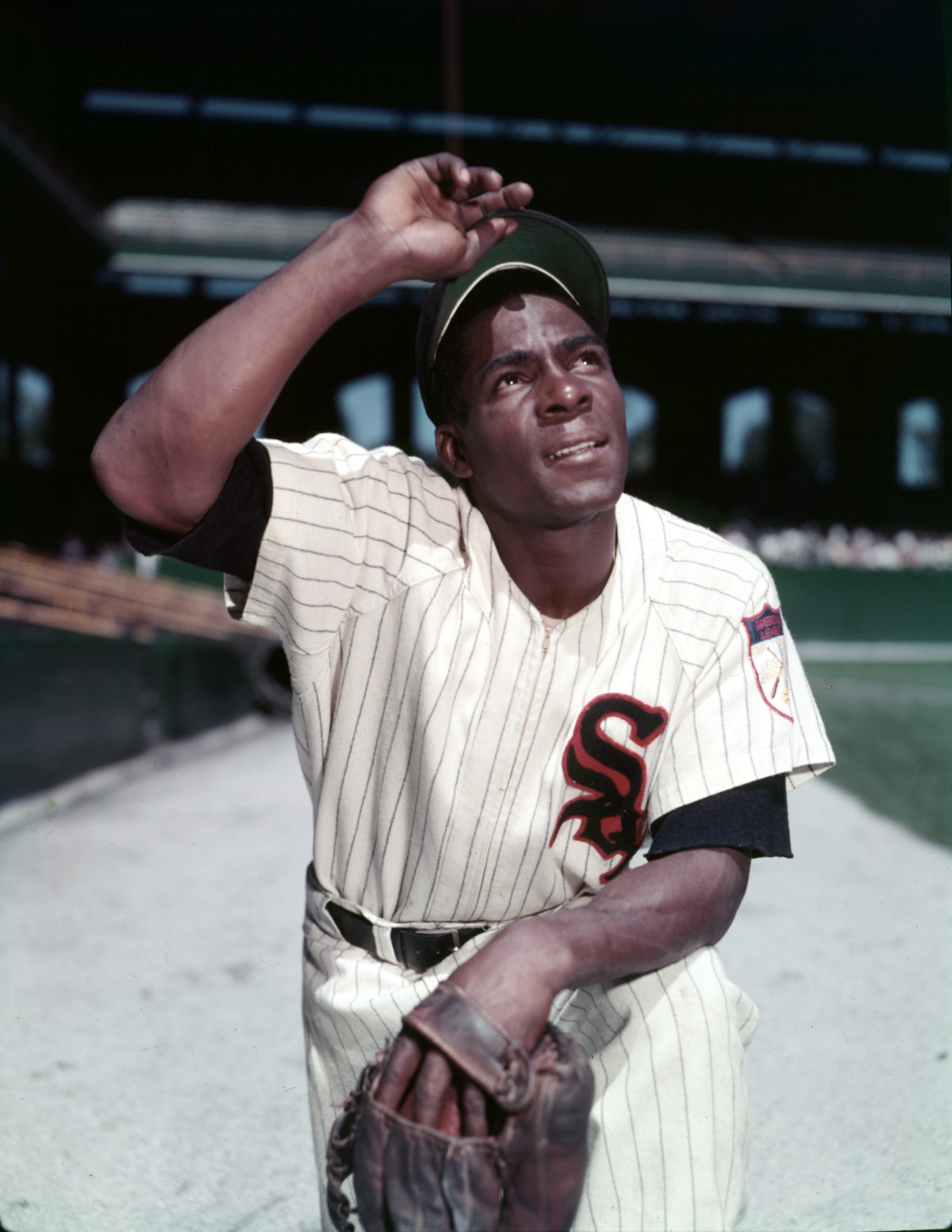
Minnie Minoso’s talent and courage opened doors for Latin American stars
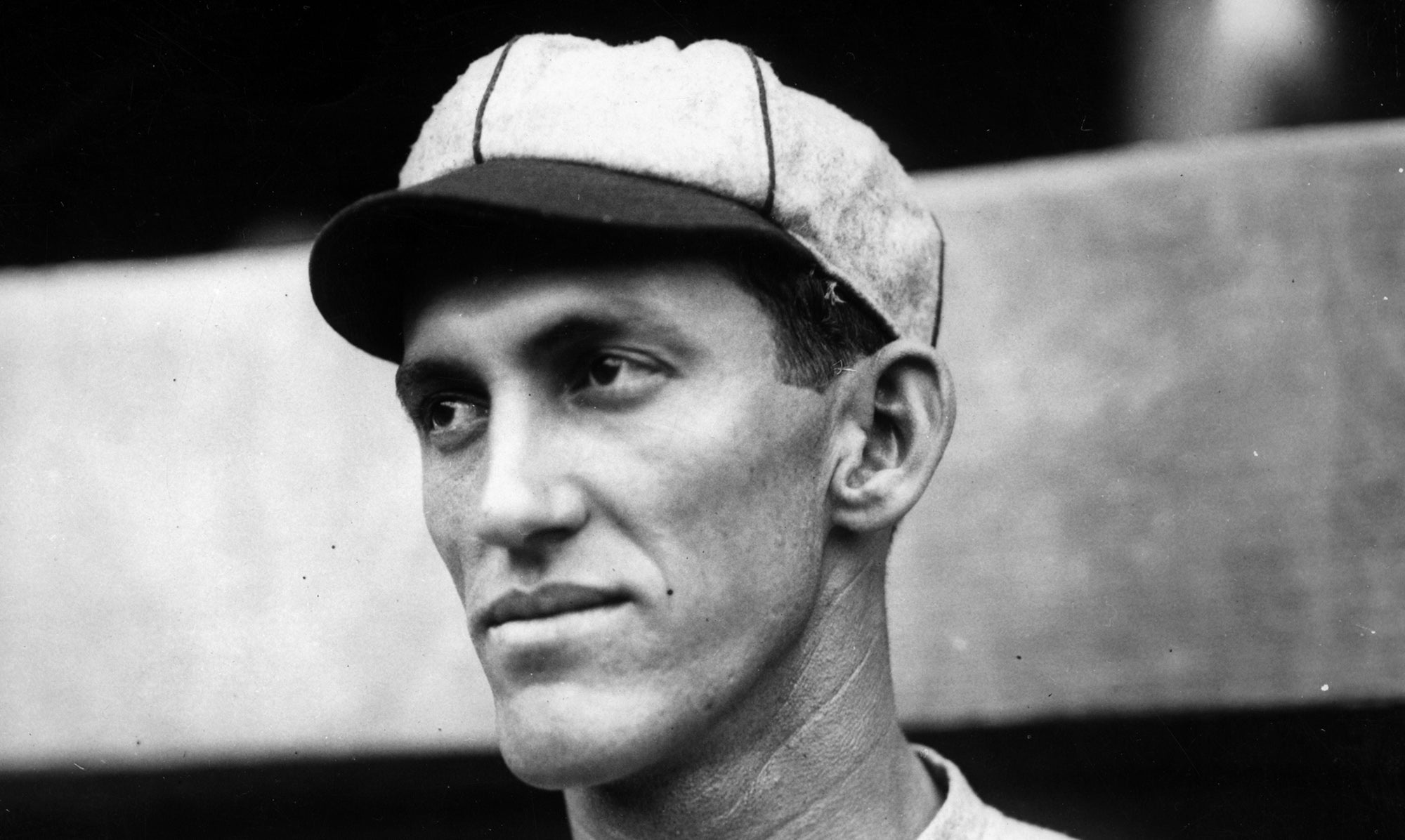
Latino managers, executives continue to break barriers
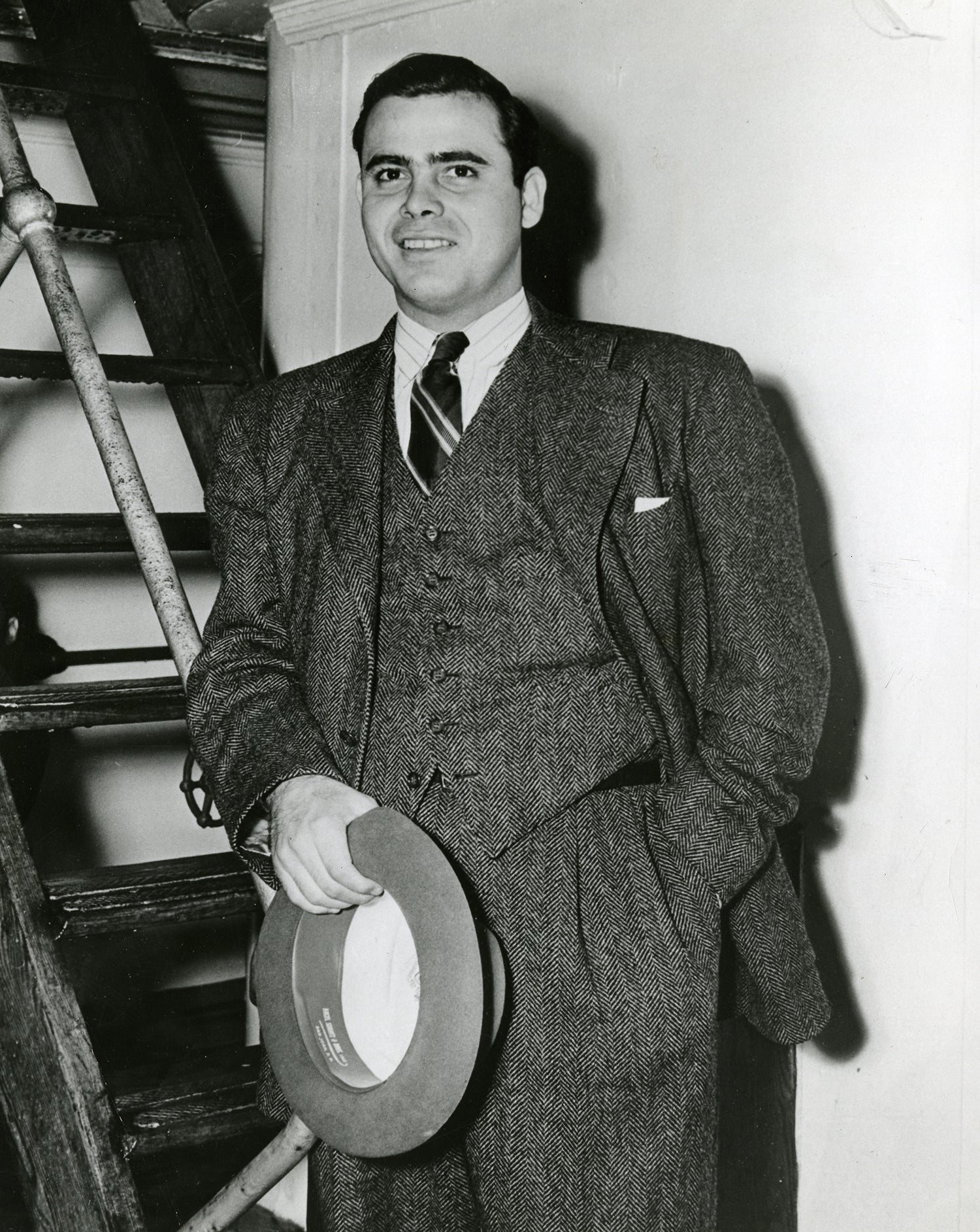
Puerto Rico’s Hiram Bithorn paved the way for a nation of baseball stars
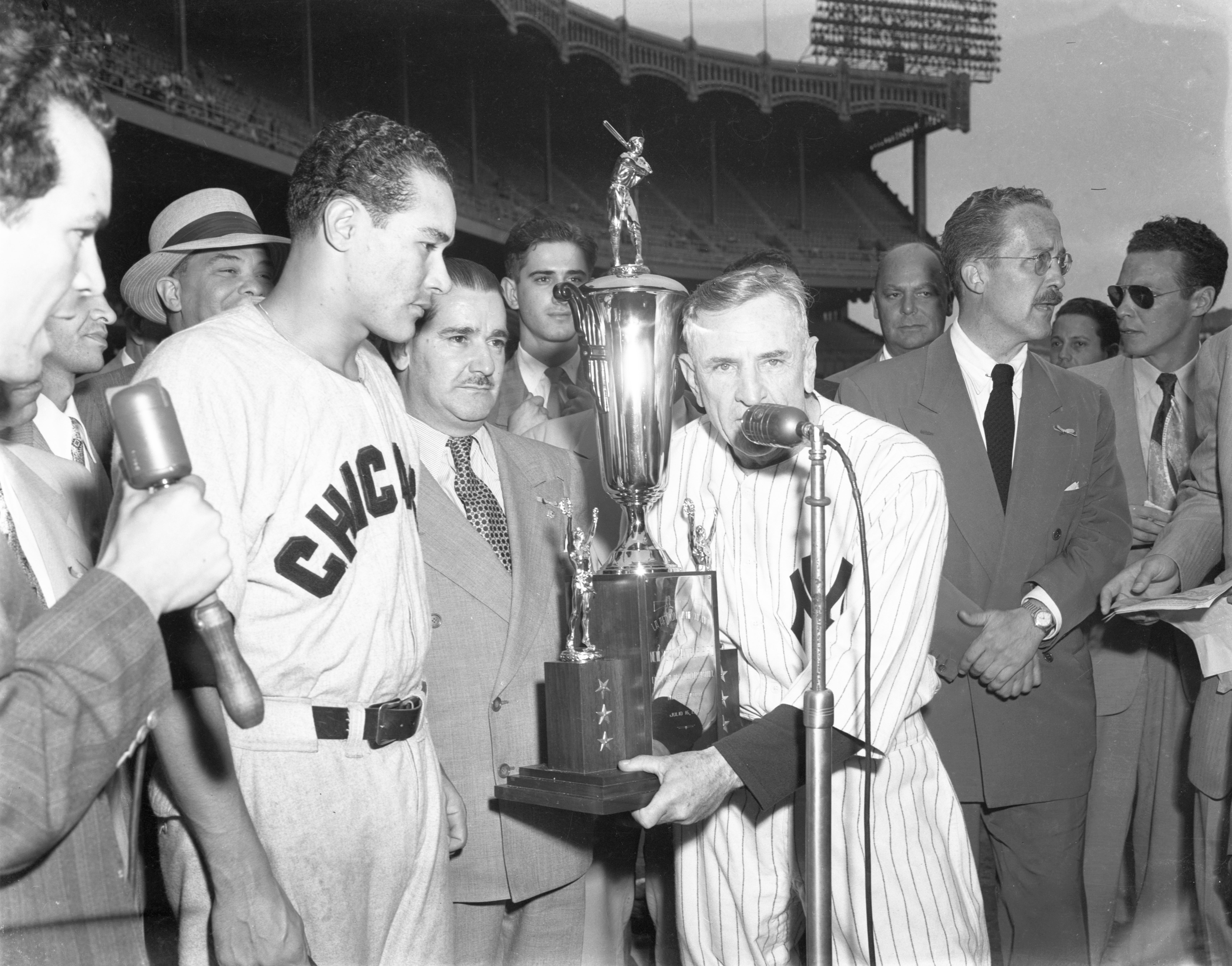
Venezuelan pride: Alfonso “Chico” Carrasquel

Minnie Minoso’s talent and courage opened doors for Latin American stars

Latino managers, executives continue to break barriers

Puerto Rico’s Hiram Bithorn paved the way for a nation of baseball stars


